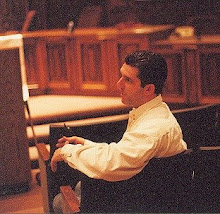The Yield Curve Inverts
We hope you had a merry Christmas. We did here. We are sensible of the fact that one of the reasons we’ve had such a good time this year is that you trust us and refer us to others like yourselves. Thank you. It means a great deal to us.
So today we have the financial equivalent of a total solar eclipse – an inverted yield curve. What this means in the concrete is that the yield on the 5-year bond (4.30%) is below the yield on shorter-dated bonds – the 3-year (4.32%) and the 2-year (4.34%). This is highly unusual, and every time it has happened in the past, it has meant a recession. It means that those holding longer-term bonds think their risk of inflation is less than those that hold short-term bonds. This is, in point of fact, impossible. If you think inflation is going up in the short term that’s bad for both short and long bonds. If you think it’s going up in the long term, that’s only bad for long bonds, and short-termers don’t care. In other words, if inflation is going up, it will be bad for long bonds no matter what. Short bonds are therefore by definition less risky than long bonds.
But not today, apparently.
The good news for mortgage-holders or mortgage-seekers is that the 30-year fixed loan is back below 6% again. Again. The bad news is that short-term mortgages are rising and actually have higher interest rates than the long-term fixed mortgages. This makes it harder to do the short-term projects like buy-fix-flip and build-flip that have made so many people so much money the last few years.
And a word on that. I have heard from some who are not in the business - and from some who clearly shouldn’t be – that the making of money by buying a distressed property, and re-selling it for a profit is immoral. After all, the people you buy the house from are themselves in deep financial trouble, and the ones that buy the house from you are typically also not doing all that well (the house is usually not a very big or very nice one). How could someone bear to make money from such people?
Here’s how: all parties in the deal end up better off. The first owner escapes having a foreclosure (which is far, far worse than a bankruptcy on a credit report), and in some cases ends up having his debt eliminated from the sale, even if the house sells for less than the total amount owing (it happens – we do it fairly often). The end buyer gets a house that is newly-restored and still probably slightly below the market. How do these people lose out here? The answer is that they don’t. In fact, if not for the middleman, who also earns a profit on the deal, the other two likely wouldn’t get together and both would lose. If you get rid of the profit for the middleman, as some propose to do, or artificially limit it, as others propose, you decrease the likelihood that the two sides will join, increase the hardship for all parties, and eliminate the incentives for the market to provide services the make everyone wealthy. It’s a system that works, and the less the regulation of it by third parties, the better it works.


<< Home